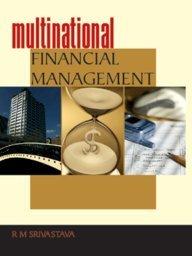Question
Suppose the 6-month risk free spot rate in HKD is 1% continuously compounded, and the 6-month risk free rate in NZD is 3% continuously compounded.
Suppose the 6-month risk free spot rate in HKD is 1% continuously compounded, and the 6-month risk free rate in NZD is 3% continuously compounded. The current exchange rate is 5 HKD/NZD.
a. Suppose again that our usual assumptions hold, i.e., no constraints or other frictions. Suppose you can enter a forward contract to buy or sell NZD 1 for HKD 5. Is there an arbitrage? If yes, describe an arbitrage strategy. If no, briefly explain why not.
b. Suppose now that there are transaction costs is spot and forward exchange rates. That is, to buy NZD 1 you have to pay HKD 5.01 in the spot market today or HKD 5.03 in the 6-month forward contract, and to sell NZD 1 you receive HKD 4.99 in the spot market today or HKD 4.97 in the 6-month forward contract. Is there an arbitrage? If yes, describe an arbitrage strategy. If no, briefly explain why not.
c. Consider again the prices in (b) and further assume that your borrowing costs are 0.5% higher than the risk free rate, while the income from lending is equal to the risk free rate. That is, if you borrow HKD for 6 months then you have to pay a 1.5% continuous compounded interest rate, and similarly, if you borrow NZD for 6 months then you have to pay a 3.5% continuous compounded interest rate. Is there an arbitrage? If yes, describe an arbitrage strategy. If no, briefly explain why not.
Step by Step Solution
There are 3 Steps involved in it
Step: 1

Get Instant Access to Expert-Tailored Solutions
See step-by-step solutions with expert insights and AI powered tools for academic success
Step: 2

Step: 3

Ace Your Homework with AI
Get the answers you need in no time with our AI-driven, step-by-step assistance
Get Started


